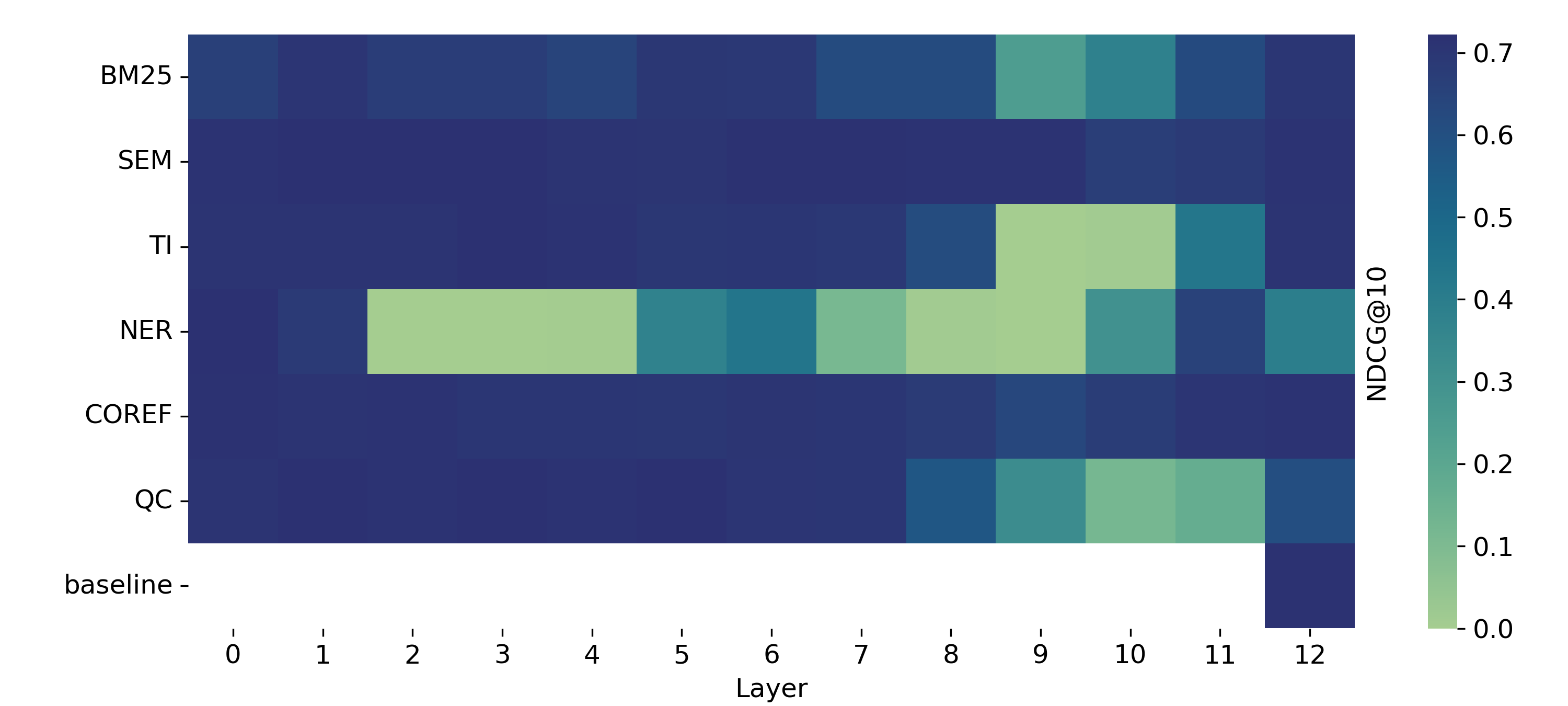This project contains the code of my masters thesis.
Results of causally probing TCT-ColBERT
 Retrieval performance on the
Retrieval performance on the
Setup Conda environment
conda create -n ma pyton=3.8
conda activate ma
pip install -r requirements
python -m spacy download en_core_wb_sm
trec evaluation
git clone https://github.com/usnistgov/trec_eval.git
cd trec_eval
make
ranking utils
git clone https://github.com/mrjleo/ranking-utils.git
cd ranking-utils
python -m pip install .
neuralcoref
git clone https://github.com/huggingface/neuralcoref.git
cd neuralcoref
pip install -r requirements.txt
pip install -e .The probing datasets for BM25, semantic similarity, NER, coreference resolution, and term importance were created using a sister repository by sampling 60k query document pairs from the MSMARCO corpus. For the question classification task, we used the available dataset of 5453 labeled questions by Li and Roth.
The core contribution of this work is understanding how large the impact of certain IR abilities is on the retrieval performance (Figure 7 in the paper). To reconstruct the causal probing results, you would have to run the following command for all IR abilities (BM25, TI, NER, ...) and for all layers of your subject model.
Example: Causally probe TCT-Colbert (=subject model) for task BM25 with intervention at layer 12. The intervention eliminates a subspace of rank 1.
python apply_intervention.py --layer=12 --eliminated_subspace_rank=1 --task=bm25 --model=tct_colbert
Example: Sanity check experiment for task NER with intervention at layer 12. The intervention eliminates a subspace of rank 8.
python apply_intervention.py --layer=12 --eliminated_subspace_rank=8 --task=ner --model=tct_colbert --ablation=reconstruct_property
Example: Subspace experiment for task NER with intervention at layer 12.
python apply_intervention.py --layer=12 --task=ner --model=tct_colbert --ablation=subspace_rank